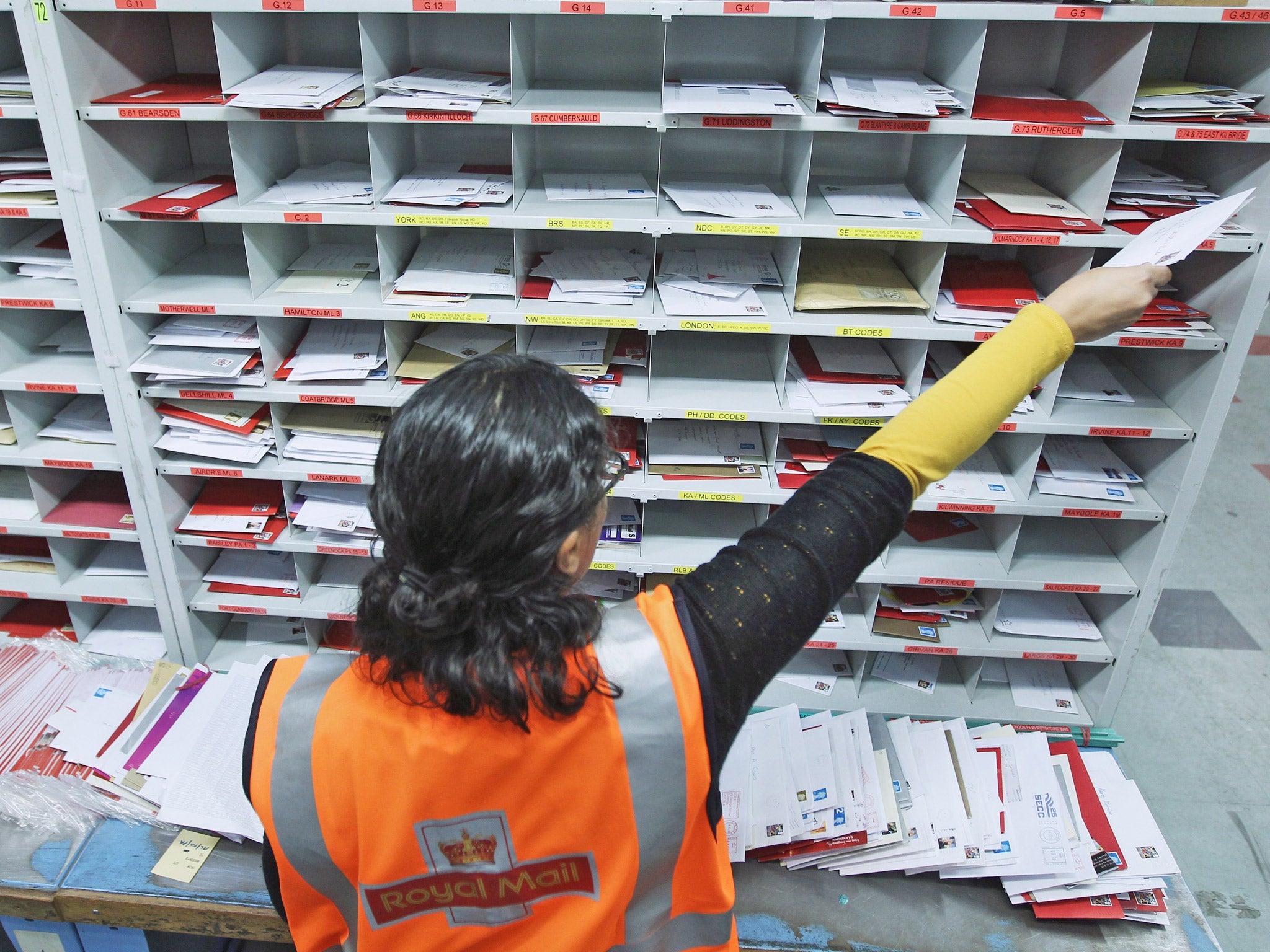Postal workers could block half of Britain's mail as dispute over monopoly on home delivery escalates

Postal workers could block the delivery of half the nation’s mail in an escalating dispute over the first challenge to the Royal Mail’s historic monopoly on home delivery, union leaders are warning tonight.
In response to private delivery workers tramping the streets for the first time, the Communication Workers’ Union announced it would ballot its 120,000 Royal Mail members in the New Year over whether they should stop handling all private mail.
If the boycott is approved, it would affect all of the £1.4bn a year worth of mail passing through Royal Mail – amounting to 44 per cent of all letters in the UK postal system, and three-quarters of all bulk mail.
The dispute – which echoes the nationwide strike by postal workers over pay three years ago - ignites a smouldering row over the future viability of the Royal Mail, which is due to be privatised next year.
Royal Mail is legally obliged to operate a universal, six-day-a-week delivery postal service across the UK, and rivals have traditionally handed the mail they have collected and sorted from large companies to the state-owned operator for the “final mile” delivery to homes.
However under a licence granted by the communications regulator Ofcom, TNT has been delivering mail directly to homes in the London postcodes of W1-16 and SW1 since April - the first time in 360 years that Royal Mail posties have faced a rival delivery service on the streets.
Since then the Dutch-owned company, which says it is providing businesses with a competitive end-to-end service, has been granted permission for trial deliveries to EC and WC addresses in the City of London.
The CWU today called for Ofcom to halt the experiment, saying that the expansion of the private sector would lead to a further decline in the Royal Mail’s finances and, ultimately, its members’ pay and conditions.
It warned in a statement: “CWU will hold a consultative ballot of its members in Royal Mail in the New Year with the intention of boycotting competitors' mail. This would mean that any mail sent via a company other than Royal Mail would not be delivered.
“If no progress is made by the regulator then the boycott will be put in place.”
Dave Ward, CWU deputy general secretary, complained: "TNT is conducting end-to-end deliveries without having to meet any quality standards while paying people little more than minimum wage. That will lead to a race to the bottom on pay which will be bad news for the economy in general and postal workers in particular.”
A spokesman for Royal Mail expressed sympathy for the CWU’s opposition to the TNT experiment, saying: “We are concerned about the impact of unfettered direct delivery competition on Royal Mail. Currently, competitors are allowed to 'cherry-pick' higher density, more profitable routes in urban areas and ignore lower density rural areas where delivery is more costly.”
However, the spokesman expressed concern at the impact of industrial action, saying: “It is vital to all of us at Royal Mail, to Royal Mail as a business and most importantly to our customers, that the post is delivered.”
A spokesman for TNT said: “We disagree with the points the CWU has made. We plan to create 20,000 jobs over the next five years in the postal sector, which is good news for the British economy and good news for the UK postal sector.”
Subscribe to Independent Premium to bookmark this article
Want to bookmark your favourite articles and stories to read or reference later? Start your Independent Premium subscription today.

Join our commenting forum
Join thought-provoking conversations, follow other Independent readers and see their replies